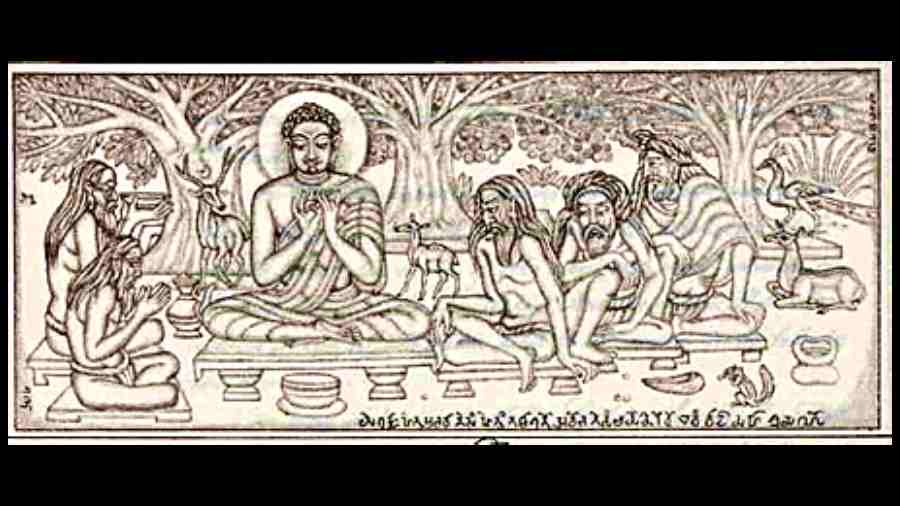A day before India was declared a sovereign, democratic republic on January 25, 1950, the Rashtriya Swayamsevak Sangh mouthpiece, Organiser, carried an article titled “Manu rules our hearts” penned by Justice (Rtd) Sankar Subba Aiyar. The article argued that India’s Constitution lacked ‘Indianess’ and that the Manusmriti should have been the crucible of the Constitution. The Manusmriti is the bible of Brahminism and, as B.R. Ambedkar had pointed out, the crux of Brahminism is the negation of the ideals of liberty, equality, and fraternity. Liberty, equality, and fraternity constitute the holy trinity of the Constitution.
Indian history has had, since ancient times, a contradicting parallel in Brahminism and Shramanism. Shramana traditions, such as Buddha, Jain, Nath, Tantra, Siddha, Shaiva, Siddhanta and Bhakti, had values that were socially inclusive and had practices that went against Brahminical norms, especially the caste hierarchy.
The Manusmriti is the cornucopia for Brahminism whereas the Shramana tradition flows out of the Buddha’s soul. The Manusmriti articulated the hierarchical varna system at the core of the Indian social system. It was in this context that Buddhism came up with a message of equality. Shramana philosophy in general and Buddhist thought in particular have deeply influenced the Indian Constitution.
The Indian Constitution is not a fan-fiction of foreign Constitutions. It has its own indigenous roots and flavours. Take equality, a cardinal principle of the Constitution. The Equality Code of the Constitution, stretching from Article 14 to 18, provides the nitty-gritty of constitutional equality — equality before law and equal protection of laws to all persons in the territory of India, abolition of social discriminations, equality of opportunity in public service, abolition of untouchability, and the abolition of titles. Equality is not a Western ideal; it is a Shramanic principle.
The fall of Buddhism occurred due to an inegalitarian counter-revolution. This counter-revolution was initiated politically by the coup d’état of Pushyamitra Shunga against Brihadratha, the last ruler of the Buddhist Mauryan dynasty, legally by the composition of the Manusmriti, and ideologically by the stabilisation of the caste hierarchy. The Manusmriti legalised the Brahmin’s right to commit regicide, thereby retroactively legitimising Pushyamitra’s assassination of the last Mauryan king.
Ambedkar once stated: “Buddhism was a revolution. It was as great a Revolution as the French Revolution. Though it began as Religious revolution, it became more than a Religious revolution. It became a Social and Political revolution.’’ Ambedkar had also categorically said in his address to the Constituent Assembly on November 25, 1949 that the democratic system established through the new Constitution was a resurrection of principles and practices of Buddhism of ancient India. In his interview to All India Radio, he reiterated that the idea of democracy is not adopted from any other source, but from Buddhism: “Let no one however say that I have borrowed my philosophy from the French Revolution. I have not. I have derived them from the teachings of my master, The Buddha. I found that his teaching was democratic to the core.” In his last speech in the Constitutional Assembly, Ambedkar had stated that the Buddhist bhikshu sanghas were truly democratic in their form and function.
In one of his works, Ambedkar had also written, “The first Social Reformer[of India] and the greatest of them all is Gautama Buddha. Any history of Social Reform must begin with him and no history of Social Reform in India will be complete which omits to take account of his great achievements.”
The Constitution is a continuum of Buddha’s revolution. Hence, it is quite natural that the worshippers of Manusmriti conceive the Constitution as their bête noire.
Faisal C.K. is UnderSecretary (Law) to the Government of Kerala. Views are personal










